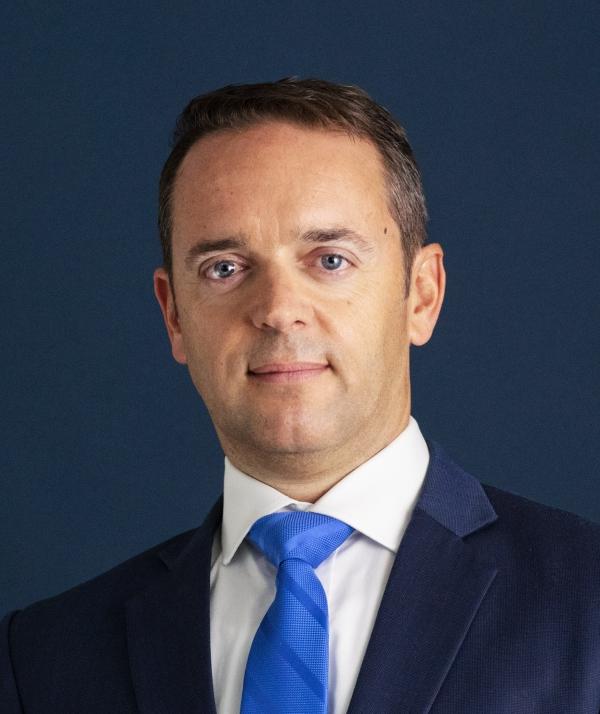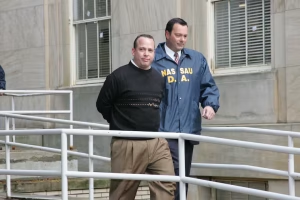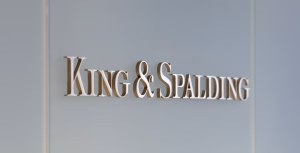Navigating Complex Cases: Marcel Frey on White Collar Crime, Asset Recovery, and International Investigations.

Marcel Frey, LL.M. Counsel - Prager Dreifuss AG Zürich
Marcel Frey is a member of the Dispute Resolution and Private Clients Teams at Swiss law firm, Prager Dreifuss AG. He represents Swiss and foreign clients in court and arbitration proceedings. He also advises private individuals with enforcing civil claims in complex cases of white collar crime. Marcel Frey regularly advises clients in international judicial assistance proceedings and the recovery of illegally acquired assets. In addition, he specializes in the enforcement of Swiss and international decisions in Switzerland. Lawyer Monthly recently caught up with Marcel to discuss white collar crime and investigations.
What emerging trends are you seeing in Switzerland regarding white-collar crime, especially in cases involving private individuals? How have these trends influenced the strategies you use to enforce civil claims?
Switzerland has seen a tightening of prosecution activities and also a heightened societal awareness of late with regard to white-collar crime. Listed companies are increasingly sensitive and stringent with regard to their CSR duties, which now also flow into their annual (non-financial) reporting obligations and have thus received significantly more visibility. In addition, the post-Covid 19 era, that saw electronic commerce surge, has opened opportunities for tech-savvy fraudsters.
Several high-profile cases have come to the courts in recent years in particular in the corporate governance area and what might have been put off as gentlemen's delicts in the past are now in the mainstream news. These activities are increasingly being viewed and pursued as equivalently odious crimes, justifying strong criminal sanctions including imprisonment. Cases are being brought against private individuals with large corporates as employers have distanced themselves from managers and board members upon finding them out for being involved in illegal activities.

In this wake, the instruments available to the prosecution authorities and the courts under Swiss criminal law and also at the disposal to private litigants who have become the victim of a crime, also of financial wrong-doing, have come into focus. So-called adhesion-claims, i.e. private damages claims brought by victims within the criminal proceedings, give private parties significant leverage against perpetrators in corruption settings. They are able to take part in the criminal investigation, gain access to the file, inspect records, request evidence to be taken (also with regard only to the damages aspect) and to request damages (in addition to a criminal conviction) of the accused in the same proceedings without needing to commence separate civil damages proceedings.
This trend has led to companies strengthening their compliance rules and provisions on conflicts of interest and requiring more transparency from their upper management. Such endeavours should have a positive effect on enforcement efforts as the transgression of such rules may indicate wrongdoing and malicious intent by accused persons.
When dealing with complex cases of white-collar crime, what are the key challenges in gathering evidence and proving wrongdoing? How do you overcome these obstacles in Swiss and international contexts?
Proving wrongdoing in financial crimes is frequently complex with economic transactions potentially needing to be analysed through many corporate levels and in different jurisdictional spheres. The smart layering of funds and reintroduction of illicit assets makes proving nefarious intentions and money flows time-consuming and frequently dependent on overseas assistance. Perpetrators are in most instances intelligent and well organised and wary of detection, leaving few to no paper or electronic trails and often working through legal fronts and by proxies.
As noted above, in Switzerland, victims of white-collar crime can benefit procedurally from their status as civil complainants in criminal proceedings, if they opt to take part in the criminal investigation (and ensuing trial) in such a role. Recognised as parties in the investigation leading to the trial, victims can follow in the wake of the public prosecution and profit from evidence gathered by those authorities with their state authority (i.e. disclosure of bank documents, transcripts of messages or telephone calls). They obtain access to the criminal file, may take part in the interrogations and other means applied by the public prosecutor to secure evidence and may even request evidence to be taken to benefit their own damages claim.
In addition, civil complainants may, once the white-collar crime allegations are brought before the court, lodge their damages claim with the same court in the same proceedings. The criminal court seized with the criminal case can, if the matter is clear, adjudge the civil claim in the same judgment which is very helpful to victims of financial crime, dispensing with the need of going through a second round of court proceedings to obtain damages redress.
Victims can base their claim on the evidence already gathered by the public prosecution or proof that has been obtained by the prosecution at their request, which is efficient and time and cost effective. An additional advantage is that the court is already familiar with the case and the evidence in the file. This facilitates obtaining damages more swiftly, than if a victim would first follow the criminal court proceedings and then commence litigation in civil court unfamiliar with the case thereafter.
Could you explain the role of Switzerland in international judicial assistance proceedings? How does the country’s legal framework facilitate or hinder collaboration with foreign authorities in white-collar crime cases?
International mutual legal assistance in criminal matters is an important instrument in white-collar crimes. This is primarily an instrument at the disposal of the prosecution authorities, however, where civil complainants invoke valid reasons for evidence to be obtained abroad, the local authority may indeed issue a request to authorities abroad. Though notoriously slow depending on the counterparty country, Swiss prosecutors will nevertheless request other countries to assist with evidence located abroad.
At the same time, Swiss authorities are frequently requested to assist with making available evidence for criminal proceedings abroad. Given Switzerland's role as an important international financial centre, and being considered a safe, reliable and politically stable jurisdiction there are still many instances where foreign prosecutors will suspect the spoils of criminal activity to have been flighted away to Swiss bank accounts, this despite increasingly strict know-your-customer and anti-money-laundering legislation and enforcement.

Aerial view of Leman lake - Geneva city in Switzerland
The Federal Act on Mutual Legal Assistance in Criminal Matters governs requests to Switzerland in criminal matters and lays down the procedures, possible measures and rights of appeal available to parties affected by overseas requests and the conditions of recognition of foreign criminal verdicts. Moreover, Switzerland also maintains a solid network of state treaties with other jurisdictions in the area of legal assistance.
When confronted with a request for legal assistance, the central (cantonal) state authority to which the international request was domestically delegated by the Federal Office of Justice will pass it on to the local prosecutor for execution. Depending on the type of assistance requested, most commonly the obtaining of bank records, the affected party will be notified and offered the opportunity to lodge a submission on whether the requested assistance should be granted or not. There are very specific reasons which may be invoked under Swiss law to decline assistance, in particular where political motives may be in play, or where human rights are not safeguarded.
In your experience, what are the most effective legal avenues for recovering illegally acquired assets within Switzerland? Are there specific procedures that make asset recovery more successful in international cases?
As noted above, taking part in the criminal proceedings as a civil complainant (with the full rights of a procedural party) and securing a damages judgment is a first important step to recovering assets. Further, during the criminal trial proceedings and based on the evidence recovered by the prosecution (or obtained at the request of the civil complainant by the prosecution), civil complainants can apply for seizure of illicit assets by the prosecution. I
n addition, civil complainants can try to demonstrate the paper trail that links the potentially illicit assets seized by the state and how they were stolen from the victim. Difficult questions may arise where illegal assets are mixed with legally obtained means and then redirected to an investment. But where such a link can be established (most commonly by means of bank records), the victim is entitled to have these funds returned to it directly in the criminal court's final judgment (restitution).
Where the pilfered funds are no longer available (used up, or not accessible), the court will seize assets to the countervalue of the assets initially stolen and can enforce this compensation claim against other (legal) assets at the disposal of the accused. The civil complainant may, where other redress is not forthcoming by the accused request the allocation of this compensation claim to the damages suffered, against the cession of its damages claim to the state.
Note, that in these proceedings, i.e. where there is no direct link between the asset seized and the damages suffered is established, the civil complainant has no better position against the accused than other creditors and may find itself in debt enforcement proceedings with other persons that have claims against the perpetrator. For this reason, investing effort into identifying the paths that the moneys of the defrauded party took, may be well worth it, as it improves significantly the chances of the victims to obtain (full) restitution.
What are some of the main legal hurdles when it comes to enforcing international judicial decisions in Switzerland, particularly in relation to financial crimes? How does Swiss law accommodate these enforcement requests?
Switzerland is, in general, a good jurisdiction to enforce foreign court decision. Switzerland has a broad network of state treaties and is well-linked internationally. At the outset, one needs to differentiate between enforcing criminal judgements on the one hand and civil (damages) judgments on the other.
Where the latter is at stake, one needs to distinguish further between situations where the judgment debtor actually resides in Switzerland, in which case ordinary debt enforcement proceedings need to be commenced against the debtor. The foreign judgment may then be invoked as the reason for the debt enforcement and gives the claimant a strong position in the debt enforcement proceedings during which it may also request incident recognition of the judgment.
Where a foreign decision clearly includes a payment obligation towards a victim and this person requests recognition and enforcement locally, the procedural steps are reasonably straight-forward. The party may request a local court to recognise the foreign judgment, doing so preferably a place where it suspects or knows of assets against which it intends to enforce.
It will be required to demonstrate plausibly the existence of assets belonging to the judgment debtor and then demonstrate that the underlying judgment is enforceable in the country of origin. If no (limited) grounds for refusal are apparent (payment or suspension of payment obligation), the court will declare the foreign judgment enforceable in Switzerland and the judgment creditor may continue with debt enforcement proceedings against the debtor in Switzerland.

In instances where the judgment debtor does not reside in Switzerland, but the claimant is aware of assets located in Switzerland, the claimant may nevertheless commence enforcement proceedings based on the foreign judgment. In those cases, the debt enforcement authorities at the place of the asset will have jurisdiction for the debt enforcement and the absent judgment debtor will be required to appoint a party (attorney) to represent him and act as place of service. Once established, the debt enforcement with recognition of the judgment takes its normal course.
How do you navigate the complexities of cross-border investigations and enforcement, particularly when multiple jurisdictions and legal systems are involved? What role does Switzerland play in fostering these collaborations?
These days, white-collar crime investigations regularly take on multijurisdictional dimensions. Illicit funds are quickly transferred abroad, important witnesses may live in other countries, evidence may be located in a far-away jurisdiction. As a civil complainant, hope frequently rests on the vigour of the domestic prosecution authorities who have the competencies to request overseas authorities to assist in the local investigation (by means of request for mutual legal assistance, which may be prompted by information given to the domestic prosecutors). As noted, Switzerland maintains a good network of international treaties with other states in the area of mutual legal assistance.
At the same time, knowledge of and access to overseas expertise in the form of law firms familiar with international financial crime challenges is of great value for a party having suffered damages: Frequently, colleagues in other jurisdictions will be aware of supplementing measures that can be requested in their jurisdiction to safeguard or facilitate the gathering of evidence or the securing of assets during the time it takes for the official route to be taken by prosecution authorities or where the own prosecution authority might not intend to follow a certain allegation over another.
Given that several countries leave fraud and related claims in the hands of civil complainants, situations may arise where a swift civil measure abroad may lead to similar investigative success as would otherwise be known only within the criminal procedure investigation. World wide freezing orders, disclosure obligations, access to company records and other similar measures available to claimants in foreign jurisdictions need to be managed complimentarily to ensure the best-possible outcome in local proceedings.
What advice would you give to private individuals seeking to enforce civil claims in white-collar crime cases? Are there particular steps they can take to strengthen their position, both in Switzerland and internationally?
As noted earlier, the particular set up in Switzerland afforded to civil parties that have fallen victim of white collar has many advantages. Joining the investigation of the public prosecutor entails a wide spectrum of advantages. Public prosecutors – instances of genuine criminal actions to the detriment of parties (and not in instances of petty financial disputes that belong to the realm of normal civil courts) are generally helpful and grateful for assistance received by civil claimants which frequently have much better knowledge of the backgrounds and potentially involved persons brought to the attention of the investigators.
Being able to access the criminal file and pouring over the evidence gathered (e-mails and other messages by accused parties, telephone recordings and transcripts, bank records, witness hearings) gives civil complainants a very comprehensive picture of the goings-on behind the scenes based on which they can piece together what might have transpired and share this information with the prosecutors who are new to the case. Based on this exchange, the prosecutor may find avenues of investigation and questioning that the authority would otherwise not have been wise to.
Becoming actively involved in the pre-trial proceedings at an early stage, though being mindful of the fact that the damages claim is a secondary concern of the prosecuting authorities, is a necessary and helpful step.
This requires the civil complainant to comply transparently with any requests by the prosecution where these are targeted against the civil complainant itself (i.e. witness interrogations of staff or members of the board of the defrauded company) in particular as the authority has discretion on how to go about its investigation. Civil complainants must bear in mind that during the investigation phase, the public prosecutor is obligated to investigate both incriminating and exculpating circumstances with equal care.
Have there been any recent legal developments in Swiss or international law that have significantly impacted the handling of white-collar crime and investigations? How do you see these changes shaping future cases in your practice?
A frequent stumbling block encountered in white-collar crime investigations is the issue of sealing of documents. Given that financial crimes are perpetrated to significant degree "on paper" (i.e. by siphoning off funds, by bribing key figures, by transferring and re-routing monies to various bank accounts), being able to access these documents and records if often a key element of proving the crime.
Accused and holders of documents may request the sealing of these records upon seizure by the prosecuting authorities. However, in an attempt to simplify and streamline unsealing proceedings, the revised provisions of the Swiss Criminal Procedure Code have limited the grounds for which document holders and accused parties may invoke sealing.
These have now been reduced to documents used in communications between the accused and his or her defence lawyer; personal records and correspondence belonging to the accused if the interest in protecting his or her privacy outweighs the interest in prosecution; items and documents used in communications between the accused and persons who may refuse to testify in accordance with articles 170–173 of the Criminal Procedure Code and who are not accused of an offence relating to the same case and lastly, to items and documents used in communications between another person and his or her lawyer.
Despite this limited list of reasons, requests by prosecution authorities to have records unsealed may still drag on and frustrate the investigation. Recent judgments by the Federal Tribunal however underscore the intentions by the legislator to reduce sealing proceedings to the fundamental issues of communication with attorneys with interests of involved parties (such as the bank itself) falling by the wayside. It may be expected that his trend will persist.
A further change in the law that directly impacts civil complainants is that they are now required to substantiate and put an amount to their civil damages claim earlier in the proceedings, this being before the holding of the main hearing.
Marcel Frey, LL.M.
Counsel
Prager Dreifuss AG
Bellerivestrasse 201, CH-8008 Zürich
Tel: +41 44 254 55 55
www.prager-dreifuss.com

























